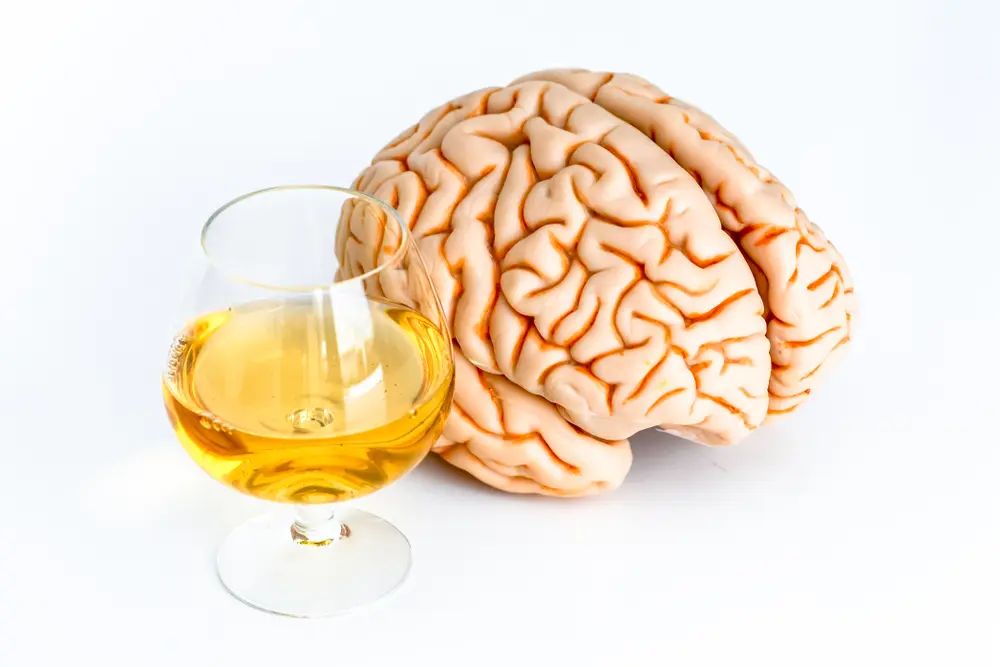[{"id":2796,"link":"https:\/\/memoriseone.com\/fasting-in-ramadan\/","name":"fasting-in-ramadan","thumbnail":{"url":"https:\/\/memoriseone.com\/wp-content\/uploads\/2026\/02\/26-fasting-in-ramadan-e1771674220180.jpg","alt":""},"title":"Fasting in Ramadan","postMeta":[],"author":{"name":"admin","link":"https:\/\/memoriseone.com\/author\/admin\/"},"date":"Feb 21, 2026","dateGMT":"2026-02-21 11:33:50","modifiedDate":"2026-02-21 11:44:05","modifiedDateGMT":"2026-02-21 11:44:05","commentCount":"0","commentStatus":"closed","categories":{"coma":"<a href=\"https:\/\/memoriseone.com\/category\/secrets\/\" rel=\"category tag\">secrets<\/a>, <a href=\"https:\/\/memoriseone.com\/category\/universe\/\" rel=\"category tag\">universe<\/a>","space":"<a href=\"https:\/\/memoriseone.com\/category\/secrets\/\" rel=\"category tag\">secrets<\/a> <a href=\"https:\/\/memoriseone.com\/category\/universe\/\" rel=\"category tag\">universe<\/a>"},"taxonomies":{"post_tag":""},"readTime":{"min":0,"sec":5},"status":"publish","excerpt":""},{"id":2733,"link":"https:\/\/memoriseone.com\/ancient-migration-resource-management\/","name":"ancient-migration-resource-management","thumbnail":{"url":"https:\/\/memoriseone.com\/wp-content\/uploads\/2025\/11\/24-ancient-migration-resource-management-e1762095068192.jpg","alt":""},"title":"Ancient Migration & Resource Management","postMeta":[],"author":{"name":"admin","link":"https:\/\/memoriseone.com\/author\/admin\/"},"date":"Nov 2, 2025","dateGMT":"2025-11-02 14:51:20","modifiedDate":"2025-11-02 15:32:06","modifiedDateGMT":"2025-11-02 15:32:06","commentCount":"0","commentStatus":"closed","categories":{"coma":"<a href=\"https:\/\/memoriseone.com\/category\/secrets\/\" rel=\"category tag\">secrets<\/a>, <a href=\"https:\/\/memoriseone.com\/category\/universe\/\" rel=\"category tag\">universe<\/a>","space":"<a href=\"https:\/\/memoriseone.com\/category\/secrets\/\" rel=\"category tag\">secrets<\/a> <a href=\"https:\/\/memoriseone.com\/category\/universe\/\" rel=\"category tag\">universe<\/a>"},"taxonomies":{"post_tag":""},"readTime":{"min":0,"sec":26},"status":"publish","excerpt":""},{"id":2730,"link":"https:\/\/memoriseone.com\/a-desert-revelation\/","name":"a-desert-revelation","thumbnail":{"url":"https:\/\/memoriseone.com\/wp-content\/uploads\/2025\/11\/23-desert-revelation-e1762094542298.jpg","alt":""},"title":"A Desert Revelation","postMeta":[],"author":{"name":"admin","link":"https:\/\/memoriseone.com\/author\/admin\/"},"date":"Nov 2, 2025","dateGMT":"2025-11-02 14:42:37","modifiedDate":"2025-11-02 15:28:17","modifiedDateGMT":"2025-11-02 15:28:17","commentCount":"0","commentStatus":"closed","categories":{"coma":"<a href=\"https:\/\/memoriseone.com\/category\/secrets\/\" rel=\"category tag\">secrets<\/a>, <a href=\"https:\/\/memoriseone.com\/category\/universe\/\" rel=\"category tag\">universe<\/a>","space":"<a href=\"https:\/\/memoriseone.com\/category\/secrets\/\" rel=\"category tag\">secrets<\/a> <a href=\"https:\/\/memoriseone.com\/category\/universe\/\" rel=\"category tag\">universe<\/a>"},"taxonomies":{"post_tag":""},"readTime":{"min":0,"sec":34},"status":"publish","excerpt":""},{"id":2725,"link":"https:\/\/memoriseone.com\/what-does-heaven-look-like\/","name":"what-does-heaven-look-like","thumbnail":{"url":"https:\/\/memoriseone.com\/wp-content\/uploads\/2025\/11\/25-what-heaven-looks-like-e1762248955133.jpg","alt":""},"title":"What does heaven look like?","postMeta":[],"author":{"name":"admin","link":"https:\/\/memoriseone.com\/author\/admin\/"},"date":"Nov 2, 2025","dateGMT":"2025-11-02 14:31:39","modifiedDate":"2025-11-04 09:36:32","modifiedDateGMT":"2025-11-04 09:36:32","commentCount":"0","commentStatus":"closed","categories":{"coma":"<a href=\"https:\/\/memoriseone.com\/category\/secrets\/\" rel=\"category tag\">secrets<\/a>, <a href=\"https:\/\/memoriseone.com\/category\/universe\/\" rel=\"category tag\">universe<\/a>","space":"<a href=\"https:\/\/memoriseone.com\/category\/secrets\/\" rel=\"category tag\">secrets<\/a> <a href=\"https:\/\/memoriseone.com\/category\/universe\/\" rel=\"category tag\">universe<\/a>"},"taxonomies":{"post_tag":""},"readTime":{"min":0,"sec":8},"status":"publish","excerpt":""},{"id":2720,"link":"https:\/\/memoriseone.com\/secrets-of-the-universe-true-size-and-orbits\/","name":"secrets-of-the-universe-true-size-and-orbits","thumbnail":{"url":"https:\/\/memoriseone.com\/wp-content\/uploads\/2025\/11\/21-the-size-scale-of-univerise-e1762092624985.jpg","alt":""},"title":"Secrets of the Universe | True size and Orbits","postMeta":[],"author":{"name":"admin","link":"https:\/\/memoriseone.com\/author\/admin\/"},"date":"Nov 2, 2025","dateGMT":"2025-11-02 14:10:35","modifiedDate":"2025-11-02 15:30:47","modifiedDateGMT":"2025-11-02 15:30:47","commentCount":"0","commentStatus":"closed","categories":{"coma":"<a href=\"https:\/\/memoriseone.com\/category\/secrets\/\" rel=\"category tag\">secrets<\/a>, <a href=\"https:\/\/memoriseone.com\/category\/universe\/\" rel=\"category tag\">universe<\/a>","space":"<a href=\"https:\/\/memoriseone.com\/category\/secrets\/\" rel=\"category tag\">secrets<\/a> <a href=\"https:\/\/memoriseone.com\/category\/universe\/\" rel=\"category tag\">universe<\/a>"},"taxonomies":{"post_tag":"<a href='https:\/\/memoriseone.com\/tag\/orbits\/' rel='post_tag'>orbits<\/a><a href='https:\/\/memoriseone.com\/tag\/religious-text\/' rel='post_tag'>religious text<\/a><a href='https:\/\/memoriseone.com\/tag\/size-of-universe\/' rel='post_tag'>size of universe<\/a>"},"readTime":{"min":0,"sec":23},"status":"publish","excerpt":""},{"id":2715,"link":"https:\/\/memoriseone.com\/the-devils-promise\/","name":"the-devils-promise","thumbnail":{"url":"https:\/\/memoriseone.com\/wp-content\/uploads\/2025\/11\/20-the-devils-promise-e1762091813576.jpg","alt":""},"title":"The Devils Promise","postMeta":[],"author":{"name":"admin","link":"https:\/\/memoriseone.com\/author\/admin\/"},"date":"Nov 2, 2025","dateGMT":"2025-11-02 13:56:05","modifiedDate":"2025-11-02 15:31:00","modifiedDateGMT":"2025-11-02 15:31:00","commentCount":"0","commentStatus":"closed","categories":{"coma":"<a href=\"https:\/\/memoriseone.com\/category\/secrets\/\" rel=\"category tag\">secrets<\/a>, <a href=\"https:\/\/memoriseone.com\/category\/universe\/\" rel=\"category tag\">universe<\/a>","space":"<a href=\"https:\/\/memoriseone.com\/category\/secrets\/\" rel=\"category tag\">secrets<\/a> <a href=\"https:\/\/memoriseone.com\/category\/universe\/\" rel=\"category tag\">universe<\/a>"},"taxonomies":{"post_tag":""},"readTime":{"min":0,"sec":35},"status":"publish","excerpt":""},{"id":2311,"link":"https:\/\/memoriseone.com\/what-is-the-singularity-in-astrophysics\/","name":"what-is-the-singularity-in-astrophysics","thumbnail":{"url":"https:\/\/memoriseone.com\/wp-content\/uploads\/2025\/09\/14-singularity-in-space-e1758029748334.jpg","alt":""},"title":"What is the Singularity in Astrophysics?","postMeta":[],"author":{"name":"admin","link":"https:\/\/memoriseone.com\/author\/admin\/"},"date":"Sep 16, 2025","dateGMT":"2025-09-16 13:20:45","modifiedDate":"2025-10-20 18:36:14","modifiedDateGMT":"2025-10-20 18:36:14","commentCount":"0","commentStatus":"closed","categories":{"coma":"<a href=\"https:\/\/memoriseone.com\/category\/secrets\/\" rel=\"category tag\">secrets<\/a>, <a href=\"https:\/\/memoriseone.com\/category\/universe\/\" rel=\"category tag\">universe<\/a>","space":"<a href=\"https:\/\/memoriseone.com\/category\/secrets\/\" rel=\"category tag\">secrets<\/a> <a href=\"https:\/\/memoriseone.com\/category\/universe\/\" rel=\"category tag\">universe<\/a>"},"taxonomies":{"post_tag":""},"readTime":{"min":3,"sec":18},"status":"publish","excerpt":""},{"id":2291,"link":"https:\/\/memoriseone.com\/the-last-supper-of-jesus-and-the-meal-mentioned-in-surah-al-maidah-a-comparative-exploration\/","name":"the-last-supper-of-jesus-and-the-meal-mentioned-in-surah-al-maidah-a-comparative-exploration","thumbnail":{"url":"https:\/\/memoriseone.com\/wp-content\/uploads\/2025\/09\/11-The-last-Meal-comparateive-1-e1757514671369.jpg","alt":""},"title":"The Last Supper of Jesus and the Meal Mentioned in Surah Al-Ma'idah: A Comparative Exploration","postMeta":[],"author":{"name":"admin","link":"https:\/\/memoriseone.com\/author\/admin\/"},"date":"Sep 10, 2025","dateGMT":"2025-09-10 14:27:46","modifiedDate":"2025-10-20 18:36:41","modifiedDateGMT":"2025-10-20 18:36:41","commentCount":"0","commentStatus":"closed","categories":{"coma":"<a href=\"https:\/\/memoriseone.com\/category\/secrets\/\" rel=\"category tag\">secrets<\/a>, <a href=\"https:\/\/memoriseone.com\/category\/universe\/\" rel=\"category tag\">universe<\/a>","space":"<a href=\"https:\/\/memoriseone.com\/category\/secrets\/\" rel=\"category tag\">secrets<\/a> <a href=\"https:\/\/memoriseone.com\/category\/universe\/\" rel=\"category tag\">universe<\/a>"},"taxonomies":{"post_tag":""},"readTime":{"min":5,"sec":55},"status":"publish","excerpt":""},{"id":2213,"link":"https:\/\/memoriseone.com\/when-prophet-sulayman-met-the-ant-kingdom\/","name":"when-prophet-sulayman-met-the-ant-kingdom","thumbnail":{"url":"https:\/\/memoriseone.com\/wp-content\/uploads\/2025\/07\/10-foods-that-boost-performance-e1760985440484.jpg","alt":""},"title":"When Prophet Sulayman Met the Ant Kingdom","postMeta":[],"author":{"name":"admin","link":"https:\/\/memoriseone.com\/author\/admin\/"},"date":"Jul 6, 2025","dateGMT":"2025-07-06 10:27:09","modifiedDate":"2025-10-20 18:37:33","modifiedDateGMT":"2025-10-20 18:37:33","commentCount":"0","commentStatus":"closed","categories":{"coma":"<a href=\"https:\/\/memoriseone.com\/category\/secrets\/\" rel=\"category tag\">secrets<\/a>","space":"<a href=\"https:\/\/memoriseone.com\/category\/secrets\/\" rel=\"category tag\">secrets<\/a>"},"taxonomies":{"post_tag":"<a href='https:\/\/memoriseone.com\/tag\/secrets\/' rel='post_tag'>secrets<\/a>"},"readTime":{"min":1,"sec":50},"status":"publish","excerpt":""}]
